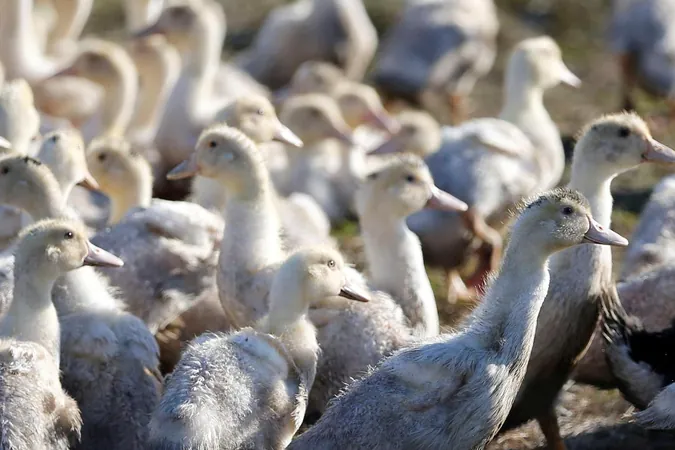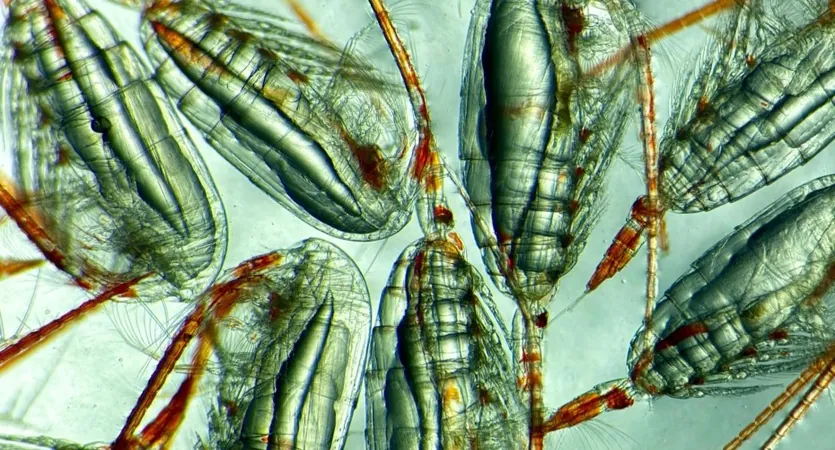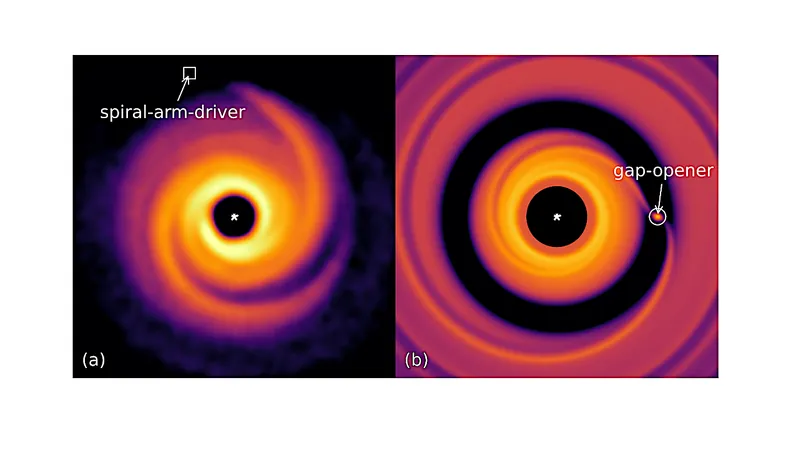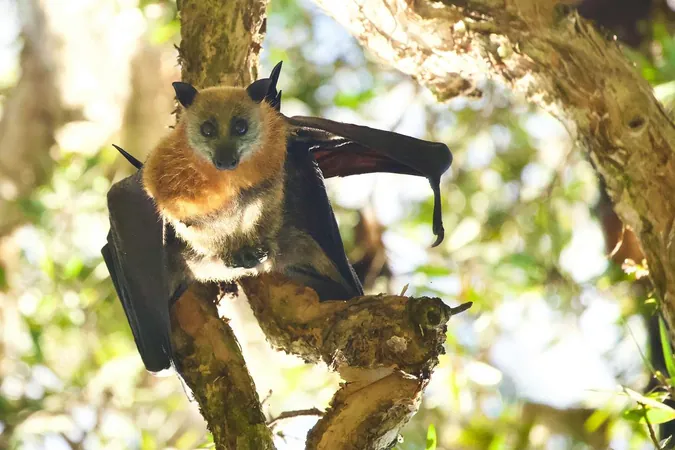
Urgent Action Needed to Combat Bird Flu After First Human Death in the US
2025-01-07
Author: Daniel
Urgent Action Needed to Combat Bird Flu After First Human Death in the US
In a startling development, the United States is facing heightened scrutiny regarding its response to bird flu, following the tragic news of the nation's first human death attributed to the virus. This incident has intensified calls for the government to enhance its preventive measures, especially in light of the upcoming political changes with Donald Trump potentially returning to the White House.
The individual, a Louisiana resident aged over 60, died after contracting the H5N1 avian influenza strain, reportedly due to exposure to infected birds. Despite having preexisting health conditions, the significance of this case cannot be overlooked—66 cases of bird flu in humans have been reported in the U.S. since January 2024, predominantly among farm workers.
Globally, experts have urged U.S. authorities to bolster surveillance and data sharing, especially as H5N1 has recently begun to spread among cattle, marking a concerning shift in its transmission vectors. The first instances of this crossover occurred in March 2024, raising alarms about the virus's potential to adapt and spread more efficiently among humans.
The World Health Organization (WHO) continues to assert that the general risk to the population remains low and that there is currently no indication of human-to-human transmission. However, scientists caution that mutations observed in mammalian hosts could lead to more infectious strains capable of human transmission. Dr. Marion Koopmans, a prominent virologist from the Netherlands, reminded the public that while there's no immediate cause for alarm, the path toward a new pandemic could start with such developments.
The ongoing global outbreak since 2020 has already devastated poultry populations, with hundreds of millions being culled and a staggering loss of wild bird populations. As researchers highlight, the slow response to the recent outbreak among cattle could exacerbate this evolving crisis. Dr. Tom Peacock from Imperial College London criticized the United States for its inadequate initial response, which he attributes to poor biosecurity measures and the intensive nature of U.S. dairy farming operations.
As fears mount, former U.S. health officials like Rick Bright are advocating for more transparency, as crucial data regarding bird flu infections in animals have yet to be released. He emphasizes the need for vaccination drives among high-risk groups, such as farm workers, with the U.S. possessing a reserve of millions of H5N1 vaccines.
Experts are also urging the Biden administration to collaborate with private companies in developing rapid home testing kits for bird flu and conducting wastewater surveillance to track the virus's presence. As the political landscape shifts, there are concerns about the potential policies of president-elect Trump and his choice for health secretary, Robert F. Kennedy Jr., a known vaccine skeptic.
In light of these developments, the public is advised to take precautions—avoid contact with potentially infected animals, steer clear of raw milk products, and secure seasonal flu vaccinations. The intersection of a seasonal flu virus and H5N1 could lead to the emergence of a novel strain that might pose additional risks to human health, indicating the urgent need for proactive measures before the situation escalates further.
As health experts urge for immediate action, the question remains: will the U.S. government rise to the challenge, or will we watch as history repeats itself?




 Brasil (PT)
Brasil (PT)
 Canada (EN)
Canada (EN)
 Chile (ES)
Chile (ES)
 Česko (CS)
Česko (CS)
 대한민국 (KO)
대한민국 (KO)
 España (ES)
España (ES)
 France (FR)
France (FR)
 Hong Kong (EN)
Hong Kong (EN)
 Italia (IT)
Italia (IT)
 日本 (JA)
日本 (JA)
 Magyarország (HU)
Magyarország (HU)
 Norge (NO)
Norge (NO)
 Polska (PL)
Polska (PL)
 Schweiz (DE)
Schweiz (DE)
 Singapore (EN)
Singapore (EN)
 Sverige (SV)
Sverige (SV)
 Suomi (FI)
Suomi (FI)
 Türkiye (TR)
Türkiye (TR)
 الإمارات العربية المتحدة (AR)
الإمارات العربية المتحدة (AR)